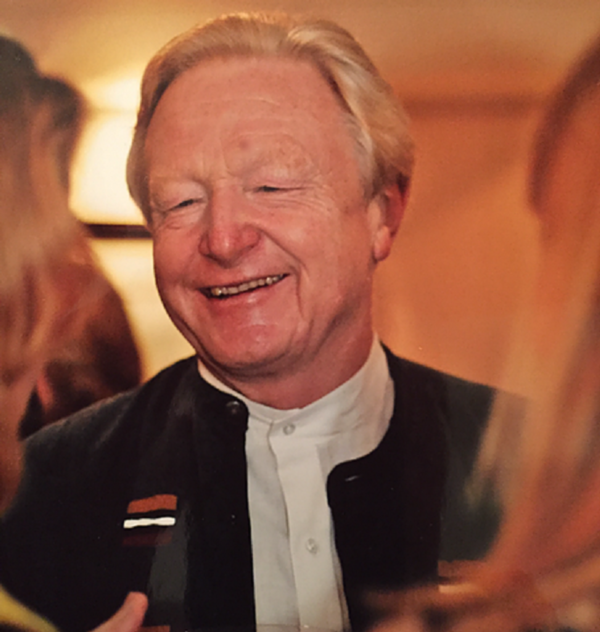
The Miles Morland Foundation marked its fifth anniversary last year. Founded in 2013, the Foundation is best-known for its Writing Scholarships: fiction (£18,000 to two, three or four writers over the course of twelve months) and nonfiction (£27,000 to a single writer over the course of eighteen months) grants paid to allow the winning scholars time to write the book they have proposed. Lesser known, but of importance, is the Foundation’s Creative Writing Workshop, launched in 2017, with the 2018 edition to be held in February.
Aside these, the Foundation has supported a host of literary and educational platforms and initiatives across the continent, including: Aapne Aap Women’s Collective, Abantu Book Fair, Adopt a School, Africa Ceremonies, African Gifted, African Leadership Academy, African Street Writer, African Writers Trust, Afrikult, AGE Africa, Ake International Book Fair, Ba re e ne re, Bahati Books, Bidoun Projects Inc, Book Aid International, Camp Amerikids, CANSS, CDEA Writer’s Lounge, Child’s i Foundation, Circle of Women, Comboni Missionary Sisters, Commonwealth Writers, Doctors of the World, Documbox, Eve Branson Foundation, Feedback, Femwrite, Frank Longford Trust, Give a Future, Greenacres Education Trust, Hargeysa International Book Fair, Hoping Foundation, Huza Press, Inside-Out, Kwani, Lake Tanganyika Floating Health Clinic, Lincoln College Development Fund, Longford Trust, Makewana’s Daughter’s, Mind, Mozambique Film Festival, Nelson Mandela Children’s Foundation, New Horizon Youth Centre, Open Bethlehem, Orwell Prize, Prufrock Magazine, Reprieve, Rhodes Trust, Room to Read, Royal African Society, Sane, Saraba, Short Story Day Africa, Sierra Leone Film Festival, Southbank Centre, Storymoja Festival, The Access Project, The British Museum, The Caine Prize, The London Library, The Marrakech Biennale, The Ministry of Stories, The Tate, Tiata Fahodzi, UK Youth, World Film Collective, Worldreader, Writers Project Ghana, Writivism, The Bush, The Donmar Warehouse, National Theatre, Royal Court, and The GateYoung Vic.
This is a message from the Foundation’s founder, Mr. Miles Morland.
Announcement: Miles Morland Foundation Update
The MMF has now been functioning as an established entity for five years. When we started we had a shotgun approach to supporting causes that appealed to us. As you can see from our website the people we have supported have very different backgrounds. The main areas have been writing in Africa, education in Africa, human rights, education for black people banged up in British jails, London theatres, and things relating to Oxford.
We are funded by me as the founder. This is terrific as it means we don’t have to go through the dreary and time-consuming business of raising money from outsiders. Phew. However, it does mean that we have limited funds to spend. When I croak the Foundation should continue its work more or less unchanged, as it will get a chunk of my estate and it will be brilliantly led by the Trustees, my daughter Tasha Morland, Alice Bragg, and Coco Ferguson. I hope they will continue to focus on the areas we currently support.
The purpose of this Memo is twofold.
First, to let people know that our focus on African writing will use up an increasing amount of our spending. We have made a real impact in this area. We have to date supported fifteen or so literary festivals all over the continent. Collectively they do a wonderful job of bringing people in Africa who write together with people who are interested in writing. We have started, with help from Giles Foden of the UEA’s top-rated Creative Writing School, holding writing workshops in Africa; these are primarily for people who have entered for our Scholarships and they seem to be going well. Most importantly, we have just awarded the fifth series of annual Morland Writing Scholarships. In those five years we have had over 2000 entries for the twenty-one Scholarships we have given to date with a total value of over £400,000. Every year that goes by we are more impressed by the freshness, talent, and sheer energy of the writers we come to know. This is likely to be our main focus.
As a result of this we will have less money to spend on the people we currently support in London and elsewhere. We have always said that our role with people we support is as a catalyst, not a crutch, so we hope they will understand when the grants they receive from us decline in value.
The second purpose is to talk about the functioning of the Foundation. Mathilda Edwards joined us three years ago as Secretary to the Foundation. During that time she has done a beyond brilliant job of keeping the show on the road with efficiency, humour, and good judgment. Being a Foundation Secretary is an important job but to better reflect the role she is now doing, she will, effective immediately, be the Foundation Manager.
Meanwhile we have been relying increasingly on Giles Foden for help and guidance. Giles has written a number of terrific books of which The Last King of Scotland is best known. With Michela Wrong stepping down as Literary Director to focus on writing her current book (see our separate announcement), Giles will be increasingly, as the Americans like to say, of counsel. We are lucky to have him on board as few people know Africa and African writing as well as he.
If you have questions you can probably find the answers on www.milesmorlandfoundation.com .
If you can’t, don’t call me, call Mathilda, the Foundation Manager. Her number is 020 7349 1245, her email [email protected].
Miles Morland,
January 2018.




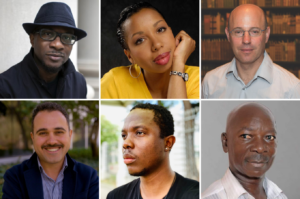
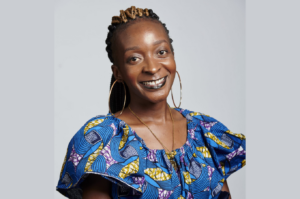
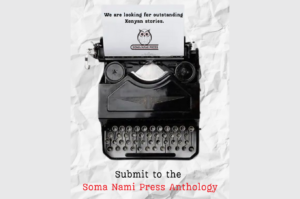
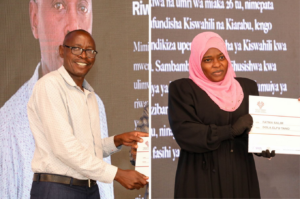

COMMENTS -
Reader Interactions